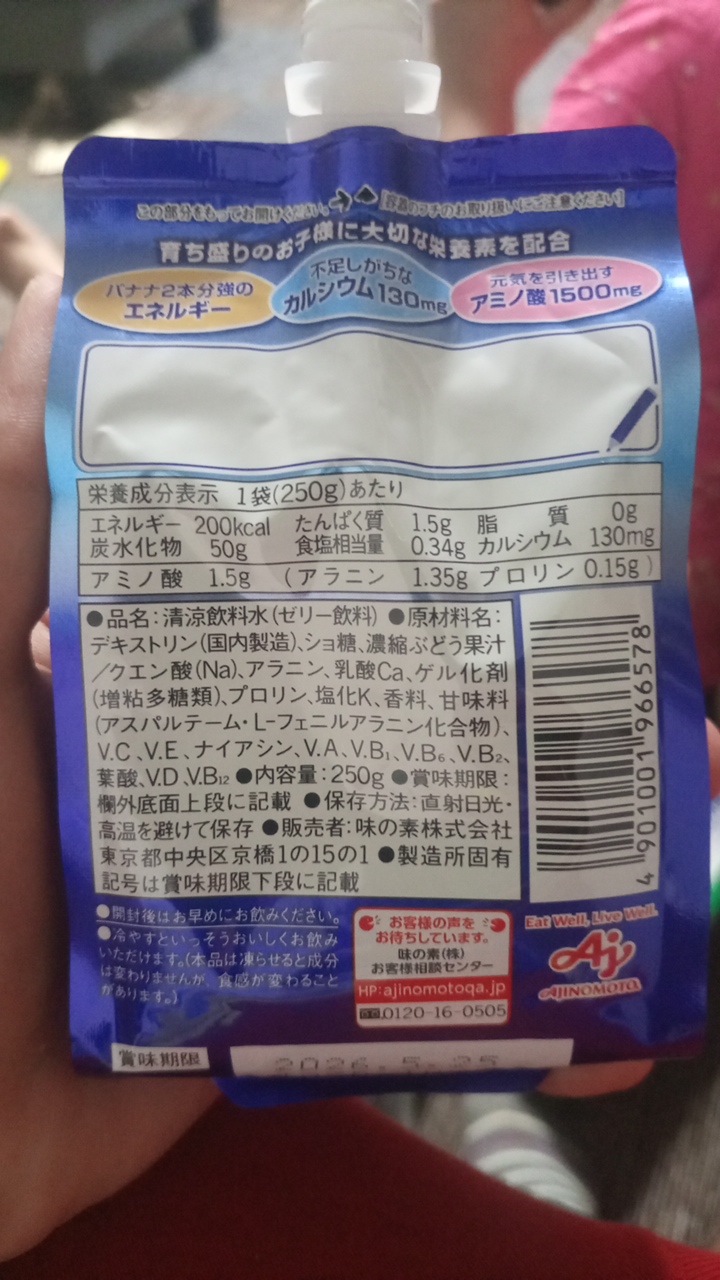
Barcode: 4901001966578
amino acid drink
DOUBTFUL
📝 Reason: This product contains ingredients requiring further verification. Their Halal status depends on undisclosed processing details and source materials that need clarification.
🏷️ Category: Beverage
📄 Certificates: Contains Nutrients Important For Growing Children, Energy Equivalent To 2 Bananas, 130Mg Of Calcium, 1500Mg Of Amino Acids, Eat Well, Live Well, Ajinomoto Customer Service Center, Hp: Ajinomotoqa.Jp, 0120 16 0505, Please Consume Immediately After Opening, Cooling Makes It Taste Better.(This Product Does Not Change The Ingredients When Frozen, But The Texture May Change)
Ingredients:
Details
Understanding the Halal Status of Amino Acid Drink
The Amino Acid Drink has garnered attention among health-conscious consumers and those observing Halal dietary laws. However, its Halal status is currently classified as DOUBTFUL. This raises an important question for many: what makes this product uncertain regarding its compliance with Halal guidelines?
Why is the Halal Status Doubtful?
The assessment of Halal suitability heavily relies on the origins and processing methods of the ingredients involved. In the case of the Amino Acid Drink, there are several ingredients and E-numbers that, while primarily considered permissible, require deeper verification concerning their sources and processing details. As a result, consumers are advised to exercise caution.
A Closer Look at Ingredients
- Dextrin (made in Japan) – E1400: A starch derivative, generally considered permissible, though certification should be verified with the supplier.
- Sugar: Plentiful in many food products, sugar is widely accepted in Islam.
- Concentrated Grape Juice: This ingredient is also permissible and does not raise any Halal concerns.
- Sodium Citrate: Widely regarded as permissible.
- Alanine: The source is unclear; hence, it requires further investigation.
- Calcium Lactate – E327: Classified as non-Halal due to its potential animal-derived sources, which necessitates reliance on trust in certification.
- Gelling Agent: Typically permissible, but specifics should be reviewed.
- Thickening Polysaccharide: Generally regarded as permissible; source information may vary.
- Proline: Unclear sourcing; more details are necessary.
- Potassium Chloride – E508: Permissible salt compound.
- Flavoring: Requires additional information to confirm Halal compliance.
- Sweetener: Options include various substances, many of which are Halal.
- Aspartame L-Phenylalanine Compound: Source needs clarification as it’s not defined.
- Vitamin C: Typically Halal compliant.
- Vitamin E – E306: This is often derived from non-Halal sources; verification needed.
- Vitamins A, B1, B2, B6, B12: Generally considered Halal.
- Folic Acid and Vitamin D: Usually permissible.
Why Ingredients Matter for the Halal Status
The ingredients of any product play a critical role in determining its Halal status. While many components of the Amino Acid Drink are lab-tested and generally permissible, the unknown sources of certain additives can lead to ambiguity. In particular, when E-numbers are involved, they often denote substances that may have various animal or plant origins. This underscores the necessity for transparency from manufacturers regarding their supply chain and production processes.
Conclusion
As noted, the Amino Acid Drink contains ingredients that require further verification. Its classification as DOUBTFUL is not to be taken lightly, especially for consumers dedicated to adhering to Halal dietary guidelines. It is crucial to prioritize safety and faithfulness to religious precepts by staying informed and cautious about product choices. Checking for Halal certification and proactively contacting the manufacturer for clarification on ingredient sourcing can provide additional peace of mind.
For those interested in healthier beverage options that also respect Halal standards, exploring brands that provide transparent ingredient sourcing and certifications will ensure compliance without compromising nutritional needs.
